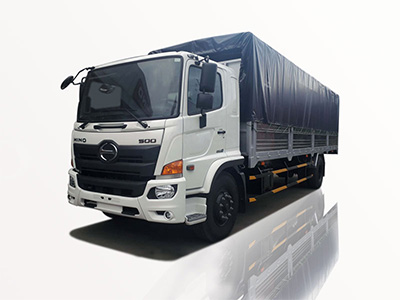In today’s fast-paced world, the demand for efficient transportation solutions has never been higher. One such solution is the small tank truck, a versatile vehicle used for transporting liquids, gases, and other materials. From delivering fuel to water and chemicals, small tank trucks play a crucial role in various industries. This article will explore the essentials of small tank trucks, their uses, benefits, and considerations for those looking to invest in one.
Understanding Small Tank Trucks
Small tank trucks are specialized vehicles designed to transport liquids and gases in small to medium quantities. They differ from larger tankers in both size and capacity, making them suitable for urban areas and delivery to locations with limited access.
Definition and Features
Typically, small tank trucks feature a tank mounted on a chassis with a capacity that usually ranges from 1,000 to 5,000 gallons. Key features include:
- Compact Size: Ideal for tight spaces and urban environments.
- Versatile Designs: Available in various configurations for different liquid types.
- Ease of Use: Designed for easy loading and unloading of materials.
Types of Small Tank Trucks
There are several types of small tank trucks, tailored to specific uses:
1. Fuel Tank Trucks
Used predominantly in the petroleum industry, these trucks deliver gasoline, diesel, and heating oil to businesses and homes.
2. Water Tank Trucks
Commonly used by construction companies, municipalities, and farms for dust control, irrigation, and firefighting purposes.
3. Chemical Tank Trucks
Designed for transporting hazardous chemicals and liquids, these trucks usually feature specialized equipment to ensure safe delivery.
4. Waste Tank Trucks
Used for liquid waste disposal, including sewage and industrial waste.
The Importance of Small Tank Trucks in Various Industries
1. Construction Industry
In construction, small tank trucks are crucial for transporting water, mixed materials, and fuel to job sites. Their ability to navigate narrow roads makes them indispensable in urban construction projects.
2. Agriculture Sector
Farmers utilize small tank trucks to transport water for irrigation and deliver fertilizers and pesticides directly to fields, ensuring better crop management.
3. Emergency Services
Small tank trucks play a significant role in firefighting and other emergency services, delivering water quickly to areas with no immediate water supply.
4. Food and Beverage Industry
These trucks are used to transport ingredients, such as milk or juices, ensuring that products are delivered safely and hygienically.
Benefits of Using Small Tank Trucks
1. Cost-Effectiveness
Smaller trucks generally have lower operating costs than larger trucks, making them more economical for businesses focused on local deliveries.
2. Flexibility
Due to their size, small tank trucks can operate in various environments, from remote farms to bustling urban centers.
3. Improved Accessibility
The compact nature of these trucks allows them to reach locations that larger vehicles cannot access, ensuring efficient delivery.
4. Enhanced Safety
Small tank trucks often require less training for drivers, and many models come equipped with safety features to prevent spills and accidents.
Choosing the Right Small Tank Truck
1. Assessing Your Needs
Before purchasing a small tank truck, assess the specific requirements of your business. Consider the type of liquids you’ll be transporting, the approximate volume, and the routes you’ll be taking.
2. Researching Types and Models
There are numerous manufacturers and models of small tank trucks available. Research different options to find one that will suit your needs while providing reliability and performance.
3. Budgeting and Financing
Establish a budget that includes not only the cost of purchasing a small tank truck but also maintenance, insurance, and fuel costs. Consider financing options if necessary.
Maintenance Tips for Small Tank Trucks
1. Regular Inspections
Conduct routine inspections of the truck, checking for leaks, damages, and wear and tear. Regular inspections help prevent major issues down the line.
2. Proper Cleaning
Clean the tank regularly to prevent contamination, especially when switching between different liquids. This practice is essential for food-grade and chemical tanks.
3. Engine Maintenance
Stay on top of engine maintenance by changing the oil, replacing filters, and checking fluid levels to ensure optimal performance.
4. Document Maintenance Records
Keep track of all maintenance work performed on the truck, including repairs and inspections. This record can be helpful when selling the truck or verifying its condition.
Environmental Considerations
With growing concerns about environmental sustainability, small tank trucks need to be designed and maintained with eco-friendliness in mind. This can include:
- Utilizing environmentally friendly materials.
- Ensuring proper waste disposal methods.
- Implementing fuel-efficient technologies.
Practical Examples of Small Tank Truck Usage
| Industry | Usage | Example Truck |
|---|---|---|
| Construction | Transporting water for dust control | International MV607 |
| Agriculture | Delivering pesticides | Ford F-550 |
| Food and Beverage | Milk transportation | Chevy Express 3500 |
| Emergency Services | Firefighting | Freightliner M2 106 |
FAQs About Small Tank Trucks
1. What is the typical capacity of a small tank truck?
The typical capacity of a small tank truck ranges from 1,000 to 5,000 gallons, depending on the model and manufacturer.
2. Are small tank trucks customizable?
Yes, many manufacturers offer customizable options to cater to specific needs, including tank size, material, and equipment used.
3. What maintenance is required for small tank trucks?
Maintenance may include regular inspections, cleaning of the tank, engine servicing, and documenting maintenance records.
4. How do I choose the right small tank truck for my needs?
Assess your transportation needs, research available models, create a budget, and consider your operational routes to find a suitable option.
5. Can small tank trucks be used for hazardous materials?
Yes, small tank trucks can transport hazardous materials, but they require special design considerations to ensure safety and compliance with regulations.
6. What are the environmental considerations for small tank trucks?
Environmental considerations include using eco-friendly materials, maintaining proper waste disposal practices, and implementing fuel-efficient technologies.





